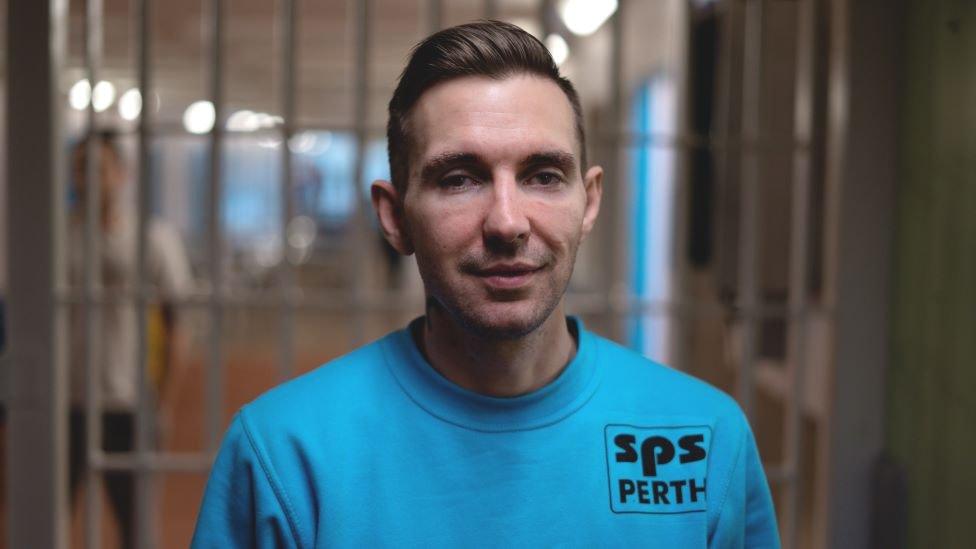Scottish prisoners to be released early to ease overcrowding
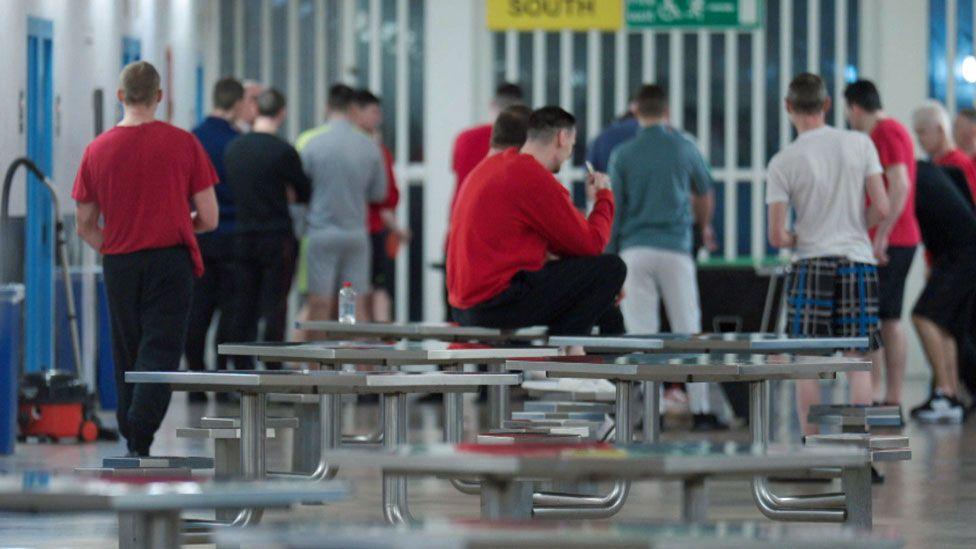
The numbers in Scottish prisons are on an upward surge, the inspector said
- Published
Scottish ministers are to seek powers to release prisoners early in a bid to reduce overcrowding in the country's jails.
Justice Secretary Angela Constance said the move would only apply to those serving sentences shorter than four years - and not to anyone convicted of sexual or domestic abuse offences.
She also said the government would seek to change rules on the automatic early release of inmates and increase the amount of time prisoners can spend on release under licenced conditions.
Scotland's chief inspector of prisons had written to ministers calling for urgent action to cut the prison population, which is close to its highest level ever.
Ms Constance said the number of prisoners had increased by 400 since 18 March.
At one point this week there were 8,365 people behind bars, the highest number since 2012.
While the cause of the increase is not yet known, the justice secretary said there was a "critical risk" to the safe operation of the prison estate, with several prisons "essentially full".
It came as ministers in England ordered the criminal justice system to delay some court cases because of overcrowding in prisons.
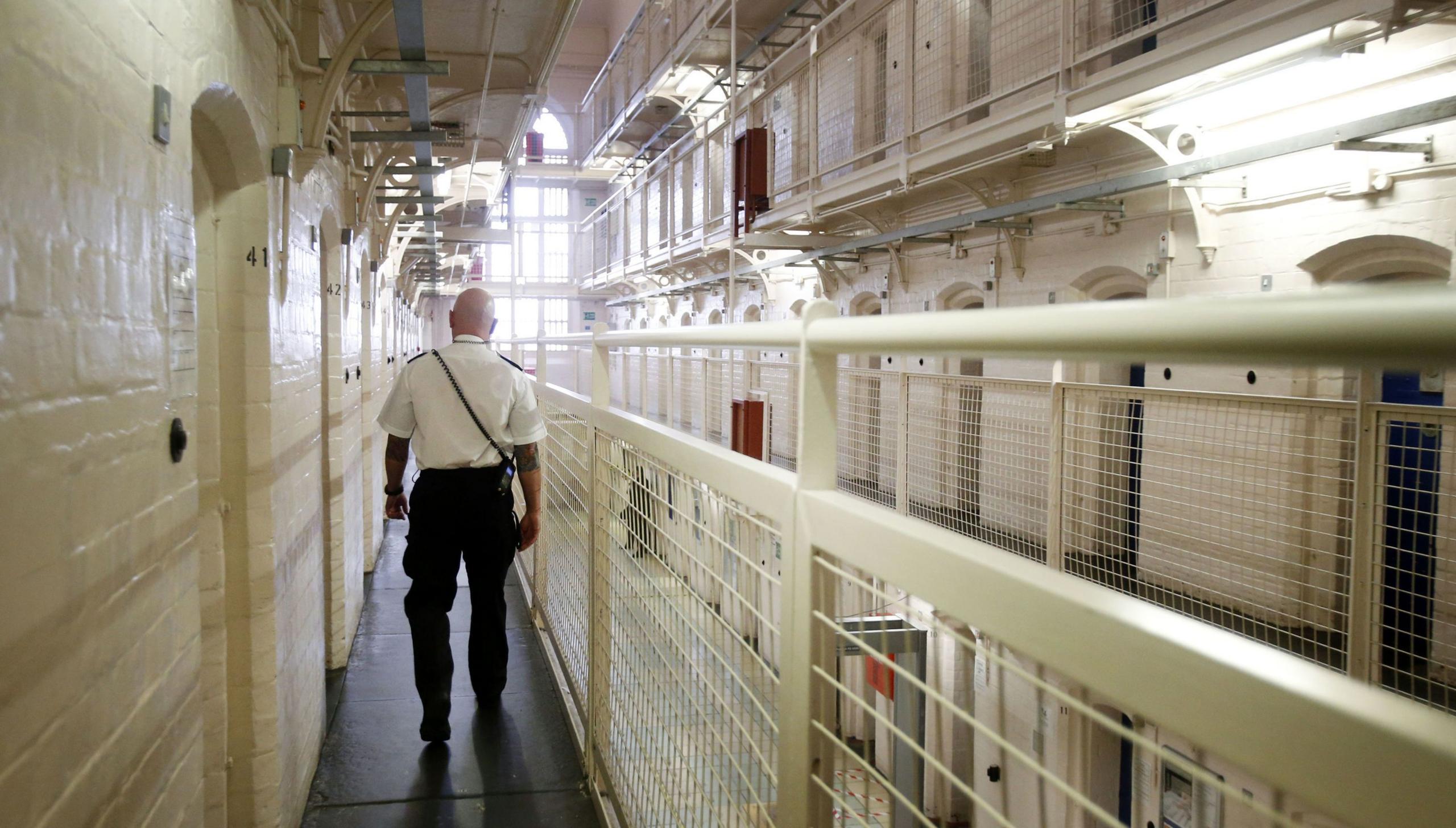
HMP Barlinnie in Glasgow is one of the prisons at high risk
Ms Constance said the government would bring into force section 11 of the Bail and Release from Custody (Scotland) Act, external, and that no prisoners would be released without parliament's approval.
She told Holyrood: "My hope was that this would never need to have been used.
"However, as things stand today, my view is that we have reached the threshold for taking emergency action.
“The sudden and sharp rise over recent weeks, combined with an already high population, has significantly increased the risk to the health, safety and welfare of both prisoners and SPS (Scottish Prison Service) staff, as well as to the security and the good order of the prison estate.”
The legislation comes into force on 26 May. If the legal test for emergency release is satisfied, the justice secretary will seek approval from MSPs within the following two weeks.
Only prisoners serving short sentences of under four years who have 180 days or less left to serve would be considered for early release.
Prisoners given life sentences will be excluded and prison governors would be able to veto the release of people they deem an “immediate risk”.
Ms Constance said the government would hold a short consultation over the summer on plans to change how prisoners are released from jail in the long term, examining the potential benefits of spending time on supervised release before the end of their sentence.
She added secondary legislation would be tabled to amend the eligibility for home detention curfew to increase the amount of time people could spend on release under licensed conditions.
Red status
Scottish Conservative deputy justice spokesperson Sharon Dowey said safety checks must be carried out on those released and asked for assurance that the public would not be put at risk.
“The SNP’s failures to deliver new prisons on time and on budget has had a damaging impact on prison overcrowding,” the Tory MSP said.
Katy Clark, Scottish Labour’s deputy spokesperson on community safety, asked for assurances that no violent offenders would be released early and called for electronic monitoring systems to be upgraded.
Scotland currently has six prisons at red status – the highest level of risk – including HMP Barlinnie, the biggest jail in the country.
A document seen by BBC Scotland News revealed that Scottish government officials suggested releasing some prisoners 18 days early to try to lower the population.
England introduced this measure last year but from next week it will increase it to 70 days to try to curb its problems with overcrowding.
Ministers south of the border have now said some suspects will be released on bail, rather than sent to a cell, because their trial will be put off.

Prisons On The Brink is available here on BBC iplayer.
Lucy Adams investigates the impact of overcrowding, drugs and suicides on inmates and staff, and asks whether our crumbling prison estate can cope much longer.

In a letter to the justice secretary seen by BBC Scotland News, chief prison inspector Ms Sinclair-Gieben said the prison service did not have either the buildings or the resources necessary to offer all prisoners a humane rehabilitation regime.
She said that indicators suggested the volume of people in custody was likely to rise further, exacerbating her concerns.
Ms Sinclair-Gieben said decreasing inmate numbers both in the long and short term was "crucial to ensuring the fair and humane treatment of prisoners, as well as action to promote public safety".
Earlier this year the chief executive of the Scottish Prison Service told BBC Scotland News that prisons were becoming so overcrowded she would soon have to say they could not take any more.
Teresa Medhurst said that if the numbers went above 8,500 then the Scottish government would have to consider releasing hundreds of prisoners with no restrictions placed on them, like it did during the Covid pandemic.
Experts have warned that small changes, such as releasing people 18 days early, will make no real difference because there are so many people going into prison.
Related topics
- Published15 May 2024
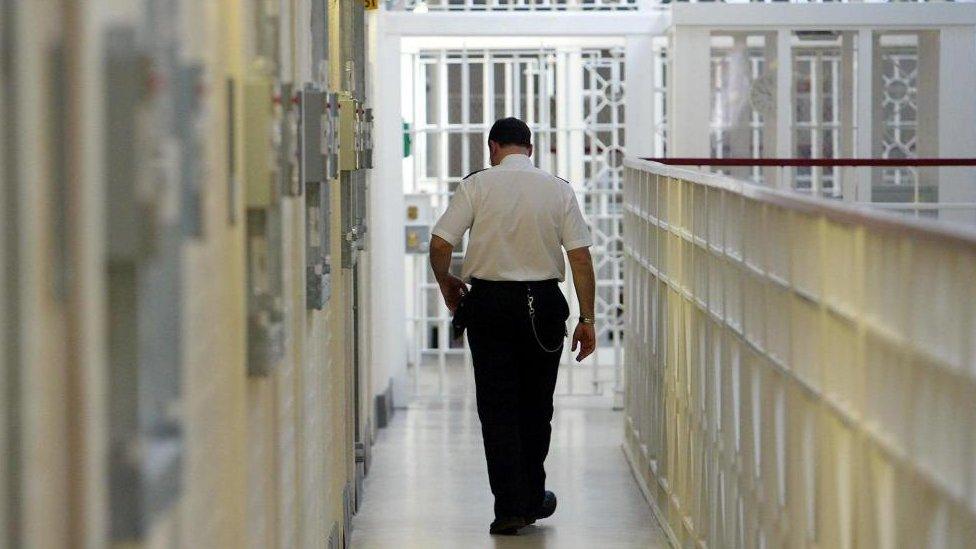
- Published8 May 2024
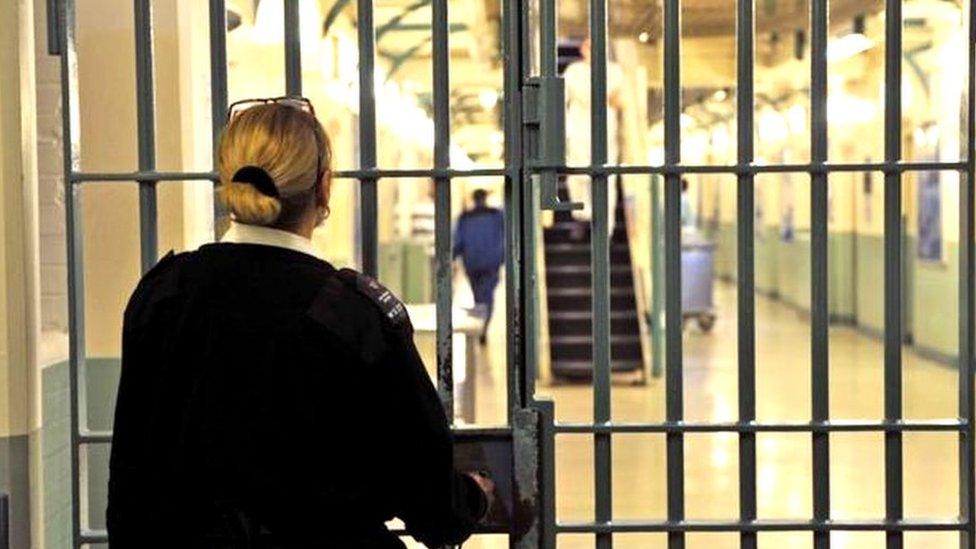
- Published5 February 2024
